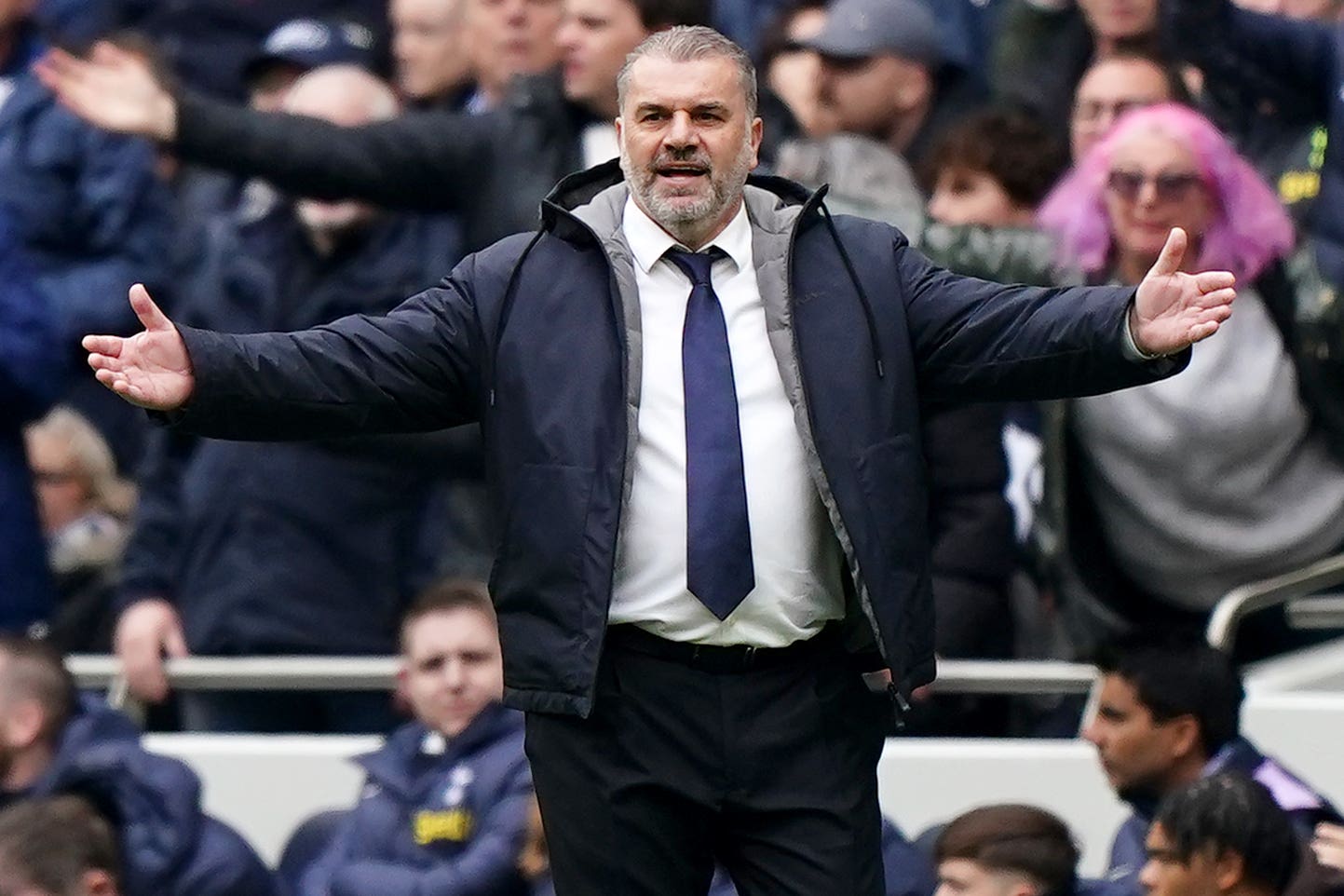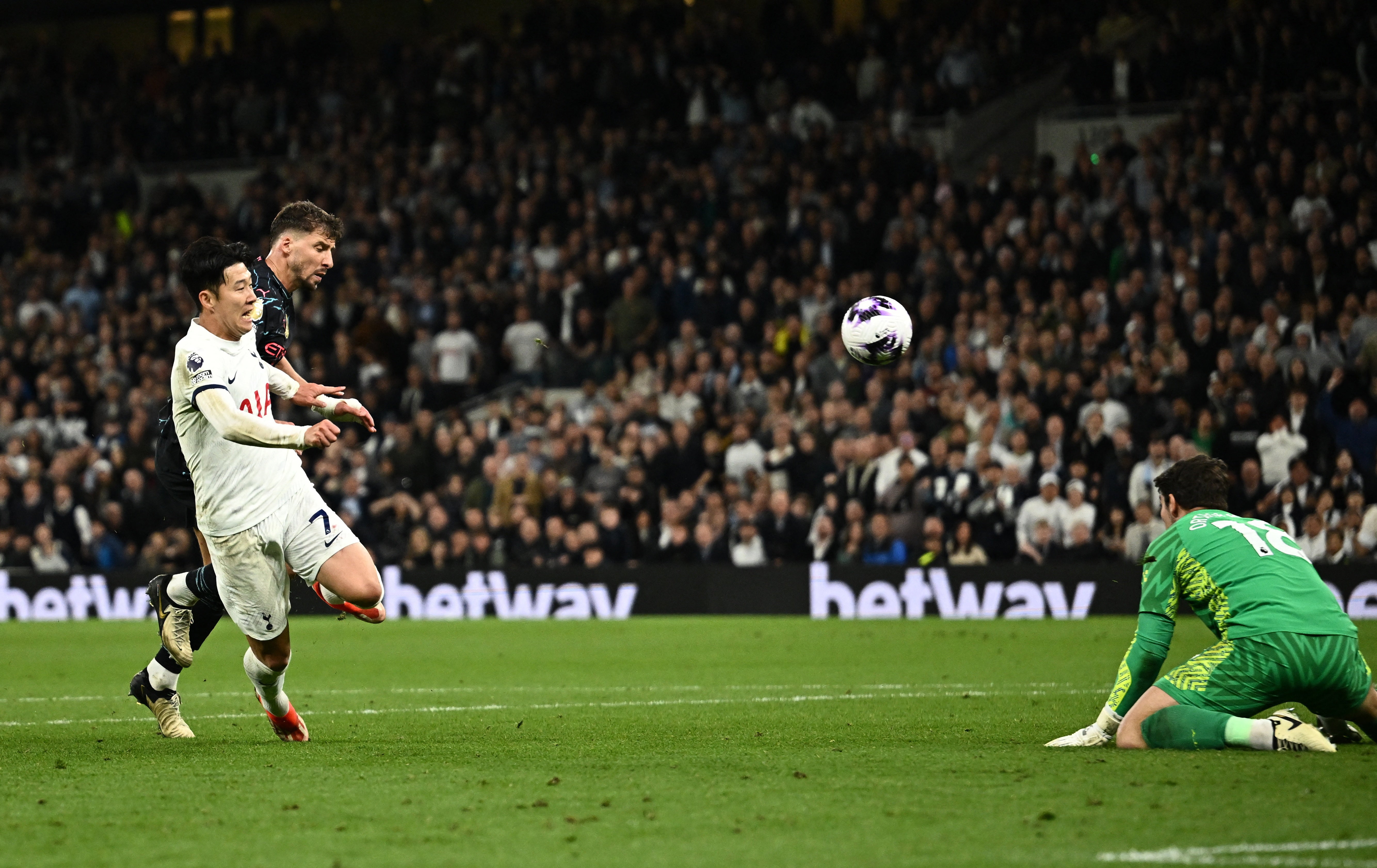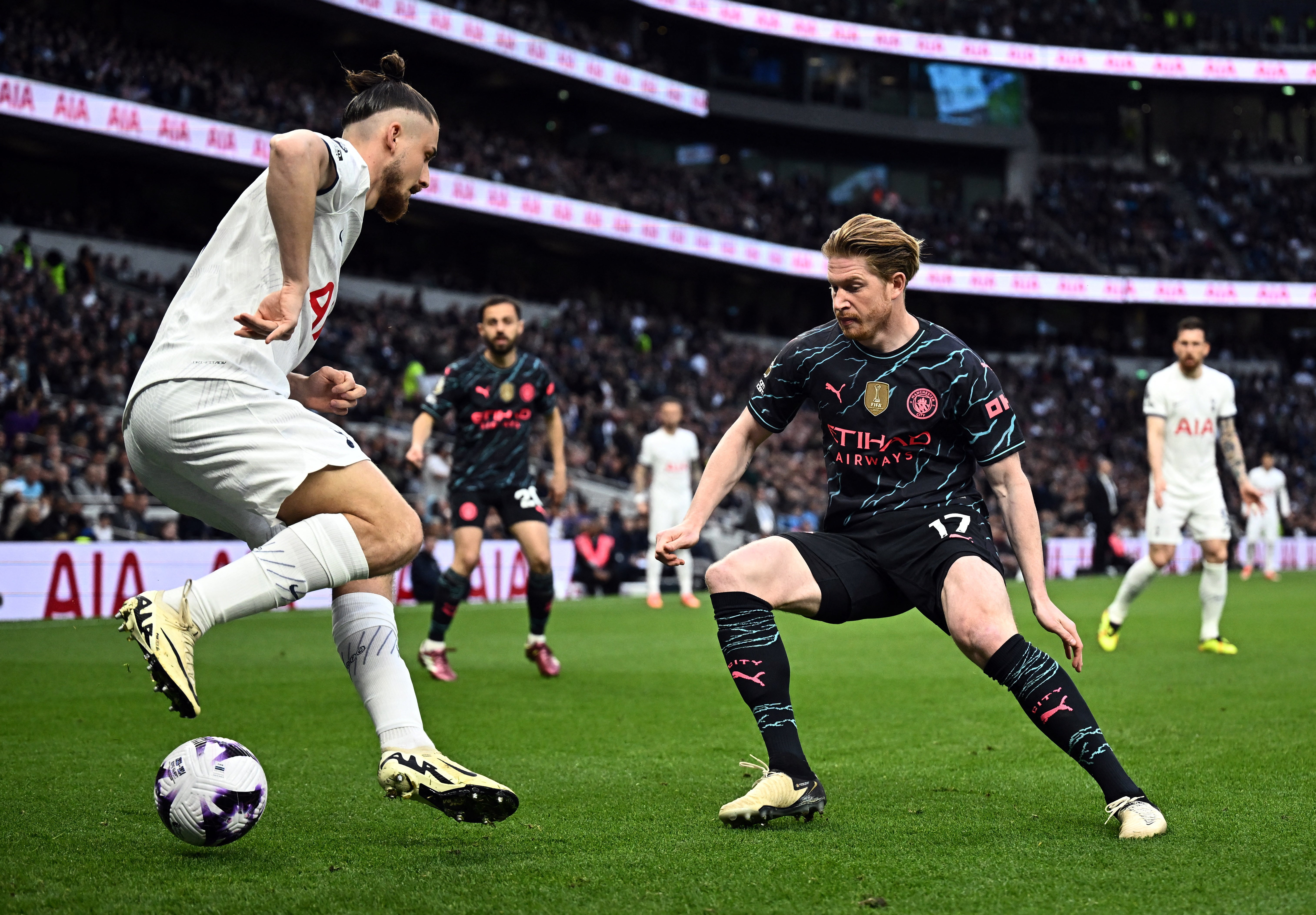
It was one of the moments of the season, one that people will talk about for years, but might well have been followed by something that said much more about the modern history of Tottenham Hotspur.
On 85 minutes, with the title on the line, Son Heung-Min bore down on goal after a Manuel Akanji slip. The Korean is statistically the best finisher in the Premier League, so this might have been the miracle Arsenal needed. Ederson wasn’t even on the pitch. Pep Guardiola admitted that all of Son’s previous goals against Manchester City, so many of them from similar situations to this, were running through his head. He couldn’t stay on his feet. Guardiola theatrically fell backwards, and later said that by then he knew the meaning of Sir Alex Ferguson’s “squeaky bum time”.
Stefan Ortega, the substitute goalkeeper, stood his ground. The miracle was instead that Son missed. He hit the ball straight at Ortega’s firmly planted leg.
Gasps turned to cheers at the City end. Spurs fans were feeling a mix of different emotions.
It was for that very reason, however, that Ange Postecoglou was clear in his own feelings. He was furious, in a press conference where he called into question so much about the modern Spurs. It was reminiscent of Antonio Conte and Jose Mourinho, if delivered in Postecoglou’s own way. And that was cutting enough.
“I think the last 48 hours have revealed a fair bit to me… the foundations are fairly fragile, mate,” he said.
Maybe the most conspicuous line, however, was the following. “I probably misread the situation as to what I think is important in your endeavour to become a winning team, but that’s OK. That’s why I’m here.”

Postecoglou refused to elaborate – insisting “it’s for me… you can make your own assessments of what’s happened” – but it wasn’t too difficult to work out. It was becoming clear that the attitude of the week, where so much of the talk was about Spurs fans not wanting to win because of the consequences for Arsenal, had got to him.
If all of this seems some way from Son’s miss, Postecoglou himself made the link explicit. He was directly asked whether the strange atmosphere affected performance, and he didn’t evade the question.
“Of course it does. It is what it is. I can’t dictate what people do. They’re allowed to express themselves any way they want. But yeah, when we’ve got late winners in games, it’s because the crowd’s helped us.”
He evidently didn’t feel that happened here. The conviction wasn’t there. This is not to question Son, since it’s simply a chance even a brilliant professional like him can miss, but more how the atmosphere shapes everything.

There are separate but connected points to be made on this.
The first is that, as Postecoglou said, you can’t tell fans how to feel. The attitude from Spurs supporters was entirely natural and fit with long-ingrained English football culture. It’s not just about loving your team but hating your rivals, especially when they have been the more successful team in that rivalry. Fans have to live in the same area. They don’t want to be the reason for an accomplishment that would be rubbed in their faces for years. Arsenal fans still go on about winning the title at White Hart Lane in 1971 and 2004. Of course they do. The fact that they haven’t actually won the league since 2004 makes it all the more pronounced, too. This would have been a historic title for Arsenal. There’s no escaping that.
And yet, at the same time, one of the reasons the feeling was so deep for Spurs fans was precisely what Postecoglou was getting at.
They have so little recent history of success that they have to resort to relishing their rivals failing. Postecoglou wants to change the former fact but he’s realising how difficult that is.
“I already know what I want to do. it’s just I’ve got to make some adjustments to how to do it… I’ve got to go back to the drawing board with some things.”
There is evidently a lot to change at Spurs. There’s a lot of the culture that can be changed. They can do so much better, and be a higher-level Brighton.

But that raises a wider point, in that it reflects the fact that Postecoglou himself is just another manager who likely sees them as a stepping stone.
The main reason this game played out in the way it did wasn’t the attitude of Spurs’ fans or Postecoglou’s tactics. It was that City’s last accounts showed a wage bill of £423m and Spurs’ showed £251m. There’s a 90 per cent correlation between wage bill and league position, that over the long term shapes the context of games like this – if not necessarily one-off games.
This is also the reason that City are on the brink of winning a historic fourth successive league title, and a sixth in seven years. Money talks in football much more than chants about your rivals or press conferences like Postecoglou’s.
It can’t go without saying this comes amid the uncertainty of City’s alleged breaches of cost-control rules. They weigh over an entire era.
Guardiola of course points to how his players do it on the pitch. That’s true and it’s also true that City used to have even more of an inferiority complex than Spurs, as well as a greater hang-up about their rivals.
And how did that change? They were taken over by a senior royal from Abu Dhabi.
This isn’t to argue that the same should follow for Spurs, since the game really needs to have a much bigger discussion about its direction. It does point to a much bigger picture, despite the snapshots of Son’s miss, Postecoglou’s press conference and Spurs fans doing the Poznan.







